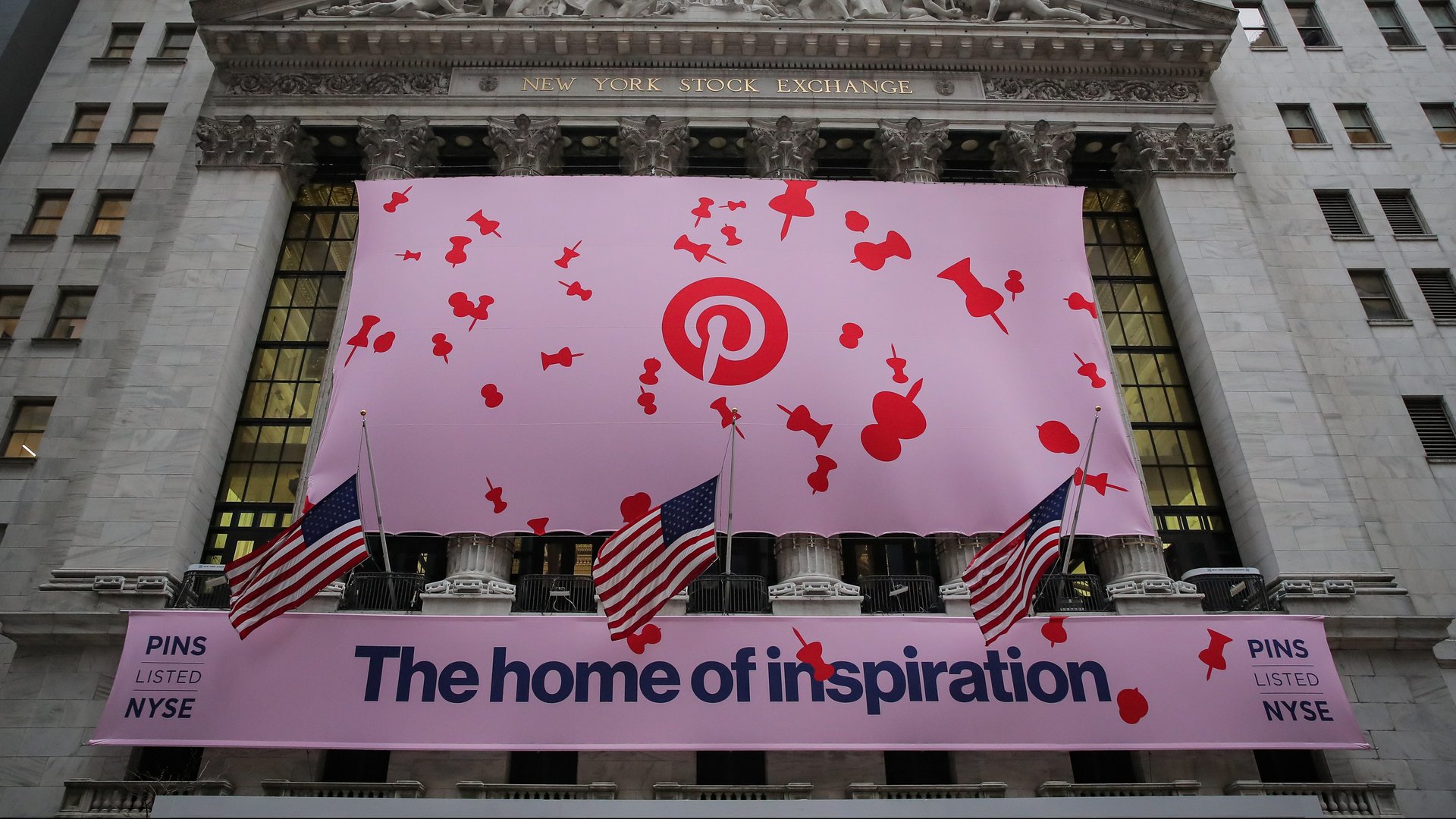Pinterest’s ban on climate change misinformation goes further than any other major social platform
Pinterest is banning misinformation about climate change from its platform. While YouTube, the Alphabet-owned video platform, banned climate misinformation from advertisers last October, Pinterest is the first major platform to ban climate change denial and similar falsehoods produced by regular users. The new policy, announced on April 5, applies to both user-generated content and advertising. Pinterest is one of the largest social media platforms in the world with 431 million monthly users—more than Snapchat or Twitter.


Pinterest is banning misinformation about climate change from its platform. While YouTube, the Alphabet-owned video platform, banned climate misinformation from advertisers last October, Pinterest is the first major platform to ban climate change denial and similar falsehoods produced by regular users. The new policy, announced on April 5, applies to both user-generated content and advertising. Pinterest is one of the largest social media platforms in the world with 431 million monthly users—more than Snapchat or Twitter.
In recent years, social media platforms have drastically expanded their rules for user-generated and advertising content, taking a hands-on approach to rooting out misinformation about elections, vaccines, and the pandemic. Pinterest’s announcement likely signals that misinformation about environmental risks is the next frontier of content moderation.
Why is Pinterest banning climate change misinformation?
“We repeatedly heard from climate experts that climate misinformation, including climate denial narratives, are causing real harm by impeding meaningful climate action,” Sarah Bromma, Pinterest’s head of policy, wrote in an email to Quartz.
Yale University researchers in a 2019 article (pdf) in the peer-reviewed journal Nature Climate Change cited evidence showing “the spread of scientific misinformation [on climate change]—at a scale and level of complexity never before witnessed—was the main culprit…altering the nature of public debate, sowing seeds of cultural and political polarization, and making meaningful legislative action nearly impossible.” It noted coordinated disinformation campaigns, funded political or corporate interests opposed to climate policies, had systematically manipulated public opinion and stymied “science-based policy development” starting in the 1970s. Approximately 14% of people in the US do not believe that climate change is occurring, and 30% do not believe that climate change is mostly caused by human activities, according to Yale University public opinion researchers.
Pinterest’s new climate change rules
Bronma wrote she hopes the new steps help “cultivate a space that’s trusted and truthful.” The company said that user searches for certain environmental keywords related to recycling and “zero-waste” were up significantly year over year. Pinterest partnered with the Climate Disinformation Coalition and the Conscious Advertising Network to develop the new rules. The new policy specifically outlaws:
- Content that denies climate change, or the human influence on climate change
- Misleading content about climate change solutions
- Content that misrepresents scientific data
- Misleading content about natural disasters, extreme weather, and other emergencies
Pinterest’s content standards were developed in league with environmental nonprofits. The final moderation decisions will be made by its trust and safety team, which will review content and decide what violates its new climate change policy.